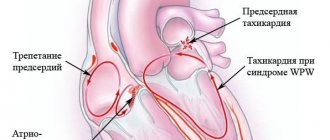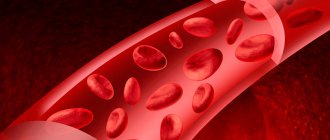The short-term craving for sleep during the day is well known to most of us. As a rule, this is a consequence of overwork, caused by increased physical and mental stress or chronic lack of sleep. Yawning and drowsiness often occur in a stuffy room with a lack of oxygen. Once you go out into the fresh air, your vigor returns. Thus, by observing the nature and duration of the period of drowsiness, we can conclude how serious the pathology is.
What to do if you constantly feel sleepy
If you constantly want to sleep, but at the same time you feel tired, your performance and concentration decrease, you should make an appointment with a doctor. Based on the results of the examination (if such a need arises), the therapist will prescribe a course of treatment or give a referral to a specialist. Most often, drowsiness is a companion to any chronic disease, so the patient will have to undergo examination so that the cause of the syndrome is correctly identified.
If a headache appears after sleep or the pain syndrome is present in a muted form during rest, while weakness and fatigue progresses, a visit to the doctor cannot be postponed. The symptoms described above are characteristic of diseases of the central nervous system, circulatory organs, heart and blood vessels, and many other pathologies.
Let us consider in more detail the features of the manifestation of drowsiness in various diseases.
Causes of fatigue
Fatigue can be divided into physiological (normal) and pathological.
With physiological fatigue of the body, the reasons are usually the following:
- Leisure
- Emotional outburst, overexcitement
- Sports training
- Hard work
- Biorhythm shift due to travel or flights
Pathological causes of fatigue:
- Mental and psychological problems: excessive mental stress, chronic stress, anxiety disorder, depression, alcohol or drug abuse
- Medicines: incorrect dosage, abrupt withdrawal and incorrect use of certain medications are a common reason why constant fatigue, weakness and loss of strength do not go away
- Insomnia: if a person does not get enough sleep, the body becomes exhausted and chronic fatigue sets in
- Vitamin deficiency: vitamins and minerals are involved in the activity of the nervous system and are responsible for mental work
- Chronic diseases: the presence of heart failure, arrhythmia, hepatitis, COPD, rheumatoid arthritis, hormonal imbalance, cancer, infectious and other diseases are common causes of weakness and fatigue
- Excess weight and eating disorders: the body is forced to experience increased stress on the cardiovascular, skeletal and other systems, prone to muscle and joint pain and the development of conditions such as diabetes or sleep apnea
- Chronic pain: such patients often wake up at night and are in a state of constant tension, which may be associated with constant fatigue
- Viral infections and the subsequent rehabilitation period
- Lack of physical activity
We should also talk about such a reason as chronic fatigue syndrome (CFS, myalgic encephalomyelitis). This is no longer just a symptom, but a separate disease, which is characterized by a high degree of fatigue without a corresponding somatic disorder. Such patients may wonder why they feel tired and apathetic all the time, almost constantly, since they are hypersensitive to even light stress.
Patients with chronic fatigue syndrome are able to carry out some relatively productive activity for only a few hours a day, or even less. We are not talking about difficult work, creative projects or intense workouts - such people are exhausted even by talking about abstract topics or going to the nearest store. They are forced to spend most of their time trying to rest and recover.
For persistent weakness and fatigue, causes in this case include viral infections, primarily the Epstein-Barr virus, and problems with the immune system. The etiology of this disease is still being studied. Risk factors include age over 40, female gender and stress.
The main symptom of CFS is extreme fatigue, which lasts for at least six months and is not relieved by rest. Characterized by post-exertional weakness, which persists for at least 24 hours.
Constant companions of chronic fatigue syndrome are various sleep disorders, cognitive disorders, muscle and joint pain, orthostatic hypotension, painful lymph nodes and frequent colds. With constant fatigue, the reasons for a decrease in the quality of life are not only in poor health, but in the fact that it becomes almost impossible to lead a full-fledged lifestyle: there is no strength for previous hobbies and even work, self-development and learning new things stops. It becomes difficult to maintain daily contact with people, to the point of social isolation.
Symptoms of the disorder may wax and wane, which can create a false sense of well-being. But, unfortunately, in the pathological condition of severe fatigue, the causes are rarely eliminated without specialized treatment. Therefore, despite temporary remissions, previous problems return with a vengeance.
It is always important to understand why you feel tired. If the condition continues for a significant amount of time and it’s not just that the day is too busy, then you need to consult with a specialist, because this not only interferes with life, but can also be a symptom of a serious mental or somatic disorder.
Vegetovascular (neurocirculatory) dystonia
Vegetative-vascular dystonia is a dysfunction of the vascular system associated with a disorder of the endocrine system (more precisely, with a change in the mechanism of neuroregulation). The disease is so common that many people do not perceive it as a serious illness. The high-risk group includes young and middle-aged women. In addition to drowsiness and headache, signs of VSD are:
- cardiopalmus,
- rapid onset of fatigue from minor physical exertion;
- feeling of lack of air (a person often sighs);
- periodic dizziness;
- pain in the heart area;
- cold extremities (especially hands and feet);
- tendency to sweat.
A large role in the development of the disease is played by hereditary predisposition, bad habits (smoking in the first place), a sedentary lifestyle, inability to withstand stressful situations, and emotional instability. VSD can develop against the background of cerebrovascular accident.
In most cases, symptoms of VSD disappear with lifestyle changes. Proper nutrition, physical exercise, adherence to a work-rest regime, and regular hardening lead to a significant improvement in well-being: drowsiness and headaches disappear, mood improves and performance increases.
In advanced cases, medications are prescribed to improve the functioning of the autonomic nervous system. The problem cannot be solved on its own; medical assistance is required.
Physical inactivity and stress
One of the most common causes of increased fatigue among middle-aged and elderly people is low physical activity8. According to research, people with low activity levels have insufficient strength and endurance, which limits their ability to exercise. However, as you start training, fatigue decreases. Moreover, the effectiveness of training is manifested even with minimal loads11.
Another scourge of our time is chronic stress. It has been proven that they are associated with increased fatigue and asthenia12.
References
- Hagemans MLC et al. Impact of late-onset Pompe disease on participation in daily life activities: Evaluation of the Rotterdam Handicap Scale // Neuromuscul. Discord. Elsevier, 2007. Vol. 17, No. 7. P. 537–543.
- Pizova N.V. Fatigue, asthenia and chronic fatigue. What it is? // Cons. medicum. 2012. T. 14, No. 2.
- Shakirova I.N., Dyukova G.M. Asthenia is an interdisciplinary problem // Difficult patient. 2012. T. 10, no. 5. pp. 14–16.
- Chen MK The epidemiology of self-perceived fatigue among adults // Prev. Med. (Baltim). Academic Press, 1986. Vol. 15, No. 1. P. 74–81.
- Westerterp KR Diet induced thermogenesis. // Nutr. Metab. (Lond). BioMed Central, 2004. Vol. 1, No. 1. P. 5.
- Blomstrand E. A Role for Branched-Chain Amino Acids in Reducing Central Fatigue // J. Nutr. 2006. Vol. 136, No. 2. P. 544S–547S.
- Johnson K., Sattari M. Vitamin D deficiency and fatigue: an unusual presentation // Springerplus. 2015. Vol. 4, No. 1. P. 584.
- Ecemis GC, Atmaca A. Quality of life is impaired not only in vitamin D deficient but also in vitamin D-insufficient pre-menopausal women. // J. Endocrinol. Invest. 2013. Vol. 36, No. 8. P. 622–627.
- Ganio MS et al. Mild dehydration impairs cognitive performance and mood of men // Br. J. Nutr. 2011. Vol. 106, No. 10. P. 1535–1543.
- Hartzler BM Fatigue on the flight deck: The consequences of sleep loss and the benefits of napping // Accid. Anal. Prev. 2014. Vol. 62. P. 309–318.
- de Vries JD et al. Exercise as an Intervention to Reduce Study-Related Fatigue among University Students: A Two-Arm Parallel Randomized Controlled Trial // PLoS One / ed. Fisher G. 2021. Vol. 11, No. 3. P. e0152137.
- Doerr JM et al. Reciprocal relationship between acute stress and acute fatigue in everyday life in a sample of university students // Biol. Psychol. 2015. Vol. 110. P. 42–49.
GZEA.PD.18.09.0435n
CNS lesions
Any brain damage caused by infection, trauma, postoperative complications or systemic diseases can lead to the development of drowsiness. Associated symptoms:
- headache;
- fatigue;
- lethargy;
- violation of attention and active orientation;
- change in facial expressions.
Drowsiness develops as you fall into a coma. Patients in a state of partial unconsciousness complain of headache, nausea, dizziness, aggravated by bright light and loud sounds.
Drowsiness also occurs when poisoned by poisons that affect the central nervous system. As a result of exposure to endogenous or exogenous toxins, depression of the central nervous system occurs. The person complains of weakness, headache, lethargy, and blurred vision. In some cases, drowsiness is replaced by bouts of excitement, after which severe fatigue sets in. The listed symptoms are alarming and indicate the need for emergency medical care.
Diagnostics
The primary examination is carried out by a general practitioner. The initial diagnostic stage consists of a detailed collection of all complaints, a history of the development of the disease, on the basis of which the presence of a certain pathology or risk factor is assumed. Then, based on the complaints, special laboratory and instrumental methods are prescribed that make it possible to confirm the probable causes of weakness. The most informative ones are:
- Neurological examination
. To study the functioning of the nervous system, cognitive functions are examined, and the time of occurrence of dermographism is measured. Specific tests (orthostatic and Danini-Aschner) reveal discoordination of sympathetic and parasympathetic regulation. The functional activity of the brain is clarified using EEG. - Blood tests
. A general blood test determines leukocytosis, hemoglobin and red blood cell levels. A biochemical study is carried out to assess liver function, detect signs of inflammation or residual electrolyte disturbances. The content of free T3 and T4 in the blood must be taken into account, and a fasting glucose test is done. - Coprogram
. If weakness occurs after symptoms of poisoning, it is necessary to do a microscopic examination of the stool and culture the material on nutrient media to detect pathogenic microorganisms. In case of prolonged dyspepsia for no apparent reason and malabsorption syndrome, stool is examined for the level of fecal elastase and specific antigen H. pylori. - Ultrasound examination
. If there are complaints from the digestive system, a survey ultrasound of the abdominal organs and retroperitoneal space is performed. In women, the pelvic organs are additionally visualized. If there are signs of a pathological process, more informative examinations are recommended - endoscopy, radiography of the intestine using a contrast agent. - ECG
. In middle-aged and elderly patients, an electrocardiogram must be recorded in standard leads and with a load. For a detailed examination of the heart, 24-hour Holter monitoring is effective. To examine the anatomical features of the heart and identify signs of valve damage, echocardiography with vascular Dopplerography is performed. - Additional methods
. To study the respiratory system, a chest x-ray is taken. Spirography helps to assess the function of external respiration. If weakness is caused by a lack of thyroid hormones, scintigraphy of the thyroid gland with iodine is indicated to diagnose organic damage. MRI and CT scan of the brain will help rule out inflammation and degenerative changes.
Drowsiness in renal and hepatic coma
Renal and hepatic coma are life-threatening conditions. Uremic (renal) coma is a consequence of chronic or acute renal failure. When the ability of the kidneys to cleanse the body of protein metabolism products decreases, pronounced signs of poisoning appear, which include lethargy, drowsiness, and indifference to the surrounding reality. The patient's only desire is to go to sleep to relieve fatigue.
In cases of acute renal failure caused by burn disease and other injuries, threatening symptoms increase rapidly. In chronic, difficult-to-treat diseases, such as renal amyloidosis or glomerulonephritis, increased drowsiness develops gradually and is often a harbinger of renal coma. Worrying signs also include blurred vision and itchy skin.
Unbalanced diet
A number of studies have found that consuming excess amounts of simple carbohydrates can make you feel tired during the day. This is due to the ability of these nutrients to quickly increase blood glucose levels, which in turn leads to the immediate production of large amounts of insulin, which removes sugar from the blood into the cells. A sharp increase and subsequent equally sharp decrease in sugar levels causes a feeling of fatigue4.
Another reason for increased fatigue is a low-calorie diet. When there is a negative balance between calories in food and energy expenditure, metabolism slows down, which can be associated with a feeling of fatigue. To prevent a slow metabolism, most people need to consume at least 1,200 calories per day5.
It is important to consume enough protein, which increases your metabolic rate more than carbohydrates and fats5. In addition, research shows that fatigue is reduced by increasing the content of branched-chain amino acids, which are the building blocks of protein. Therefore, to keep your metabolism high enough to prevent fatigue, you should consume protein at every meal6.
Brain contusion
With a brain injury, negative symptoms increase gradually, so the patient’s general well-being does not always correspond to the severity of the injuries received. Drowsiness and apathy may be the only signs indicating a pathological condition. As swelling increases, tissue compression increases, intracranial pressure increases, which causes symptoms such as headache, nausea, and vomiting. Urgent care should be called if the patient is sleeping after the injury without taking sedatives.
Questions and answers
If you always want to sleep after stress, is it necessary to undergo treatment?
To clarify the cause of drowsiness, you need to undergo tests and tests, and then visit a doctor. If it lies in chronic stress and overstrain of the nervous system, it is recommended to consult a psychotherapist.
Is it possible to completely eliminate drowsiness?
If drowsiness appears due to constant lack of sleep, physical or nervous fatigue, as well as as a result of taking a number of medications, then it can be eliminated by normalizing the lifestyle, reviewing treatment and regular proper rest. If the problem continues for a long time and nothing helps, you should see a specialist; this may be a sign of a disease that requires proper treatment.
Hypothermia
The onset of drowsiness after a long stay in the cold is due to a pronounced disruption of metabolic processes in the cells of the cerebral cortex due to a decrease in body temperature and pathological changes in the nature of biochemical reactions. In case of short-term exposure to low temperatures, drowsiness goes away on its own, and in case of frostbite, comprehensive medical care is required. Surgeons, neurologists, neurologists, traumatologists, therapists and doctors of other specializations take part in rehabilitation.
Which doctor treats drowsiness
The Kuntsevo Treatment and Rehabilitation Center offers patients with drowsiness the help of experienced neurologists. The clinic has its own diagnostic facilities for conducting research - MRI, ultrasound, electroneuromyography, etc. Rehabilitation of the patient is carried out here. In one clinic, the patient is diagnosed, provided with medical consultations and recovery procedures.
Consequences of drug therapy
Some types of medications cause increased drowsiness, headaches, dry mouth and other unpleasant side effects. These drugs primarily include antipsychotics, tranquilizers, and antidepressants. The craving for sleep is also increased by some medications prescribed for hypertension, in particular, these include clonidine, amlodipine, and condiline.
Most previous generation antihistamines prescribed for the treatment of allergies have a hypnotic and sedative effect. These are diphenhydramine, pipolfen, suprastin, tavegil. Some drugs reduce concentration. When you stop taking the medication, all negative symptoms disappear.
Vitamin deficiency
It is known that asthenia can be caused by a deficiency of certain vitamins and microelements, in particular vitamin D. Low levels of this vital nutrient in the blood can have a negative impact on performance and quality of life in general7. The results of clinical studies indicate that a decrease in the level of sunshine vitamin in the blood of women less than 29 ng/ml is associated with significantly more frequent complaints of increased fatigue compared with a level of more than 30 ng/ml8.
Many biochemical processes occurring in the body every day are accompanied by fluid loss, which is important to compensate. Research shows that even small amounts of fluid loss can lead to decreased energy levels, decreased concentration, and increased fatigue9.
General indications for sleep disturbances
If you feel sleepy during the day, you must adhere to simple rules and regulations, regardless of the reasons for the pathological condition:
- give up strong coffee and tea (especially in the evening);
- exclude heavy, high-calorie foods from the diet;
- include physical exercise and walks before bedtime in your daily routine;
- avoid stress;
- avoid hot baths and showers (give preference to warm and cool water);
- exclude alcohol and smoking.
Be sure to undergo a diagnostic examination. Drowsiness rarely occurs for no apparent reason, so you should not expect that the unpleasant condition will go away on its own.
How to get rid of sleepiness at work?
Give a light head massage to speed up blood circulation and stimulate brain function. Eating an apple, which is better than a cup of coffee, fills the body with energy and vitamins. Get up and walk if you feel lethargic and drowsy - endorphins will help you come to your senses faster. Listen to your own body: a sudden desire to eat chocolate may indicate a drop in blood sugar levels, and it is worth listening to your body and returning your brain to fighting capacity - just do not eat a cake, cookies, butternut squash or waffle. Excess carbohydrates will have the opposite effect - increased drowsiness after twenty minutes. Coenzyme Q10, together with B vitamins, will become a source of vigor in every cell and renew the nervous system.
Treatment
If warning signs that are systemic in nature appear, including drowsiness and headaches, make an appointment with a specialist at the MedCom clinic in Ryazan. Experienced doctors will quickly and accurately diagnose and prescribe the correct treatment on an outpatient or inpatient basis. It has everything you need to undergo diagnostics and receive effective medical care, without queues or a bureaucratic approach. If you have any questions, please contact us by phone or through the online form.
When you need to see a doctor urgently
In some cases, if a headache appears in combination with weakness, you should immediately seek medical help, as they may indicate the development of dangerous diseases and conditions, including stroke and meningitis (inflammation of the lining of the brain).
Alarming symptoms are:
- severe headache that comes on suddenly;
- limited ability to tilt your head forward, pressing your chin to your chest, combined with general weakness;
- confusion;
- visual impairment, speech impairment;
- numbness of the limbs.








